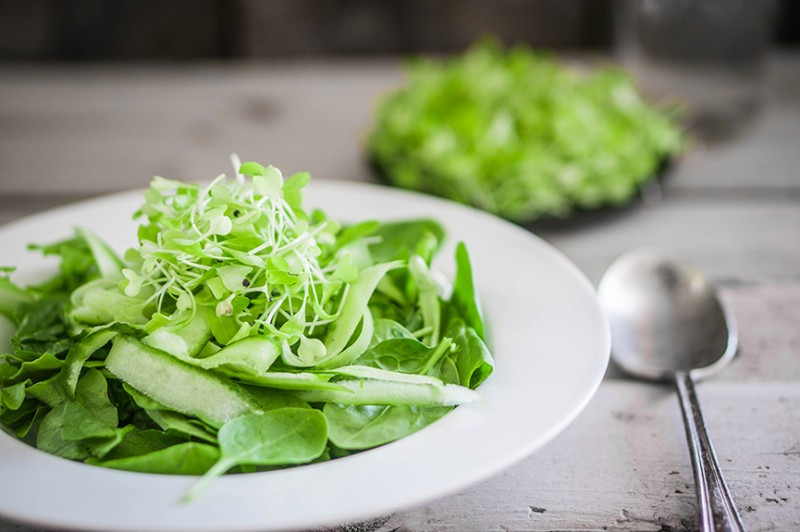Quick! A show of hands for everyone who knows what
folic acid is and what role(s) it plays in our health. Anyone?
Just like we thought. Few of us know what folic acid is or what it does. Chances are you have heard of it, maybe even noticed it on food packaging labels, but perhaps you don't realize how important it is, or how just a small amount a day of folic acid can go a long way in keeping you healthy.
This is also the right time to be learning more about it, as we are in the middle of Folic Acid Awareness Week. (Be sure to tell all your friends! Nothing beats celebrating New Year's and Folic Acid Awareness Week back to back, huh?)
There are two forms of this substance—the naturally occurring folate (think leafy vegetables, such as spinach and kale), and the synthetic form, where we get the name "folic acid." Folate and
folic acid are forms of
vitamin B9, a water-soluble vitamin, meaning any excess quantities of it can be naturally secreted in urine. Other foods known to be rich in folate, as compiled by
medicalnewstoday.com, are:
- Liver (although not recommended for women)
Speaking of food labeling and reading those labels closely, you will see that folic acid has been added to many types of foods such as cereals, flours, breads, pasta, bakery items, cookies and crackers, according to
webmd.com, and there's a good reason for this—it has been required by federal law since 1998.
Folic acid wears many hats in helping us maintain good health. For one thing, it is needed for proper development of the human body as it's involved in producing DNA—in layman's terms, our genetic material, as
webmd.com puts it. It's also used in preventing and treating folate deficiency, anemia and the inability of the bowel to properly absorb nutrients. Note that folate deficiency can produce symptoms such as forgetfulness and fatigue.
Folate/folic acid is an especially important consideration for pregnant women or those women planning to get pregnant sometime in the next 12 months. They need sufficient folic acid—0.4 milligrams a day is the recommended amount—to prevent major birth defects of the baby's brain or spine, such as spina bifida and anencephaly. Recent reports and studies have also made mention of possible links between folic acid deficiency and autism as well as cleft lip and palate.
The
March of Dimes, which funds research and works to prevent birth defects and infant mortality, among other things, suggests that all women of childbearing age make a conscious effort to take sufficient folic acid, even if they aren't planning to get pregnant, as many pregnancies are unplanned. Spread the word—according to a study cited by
medicinenet.com, only 10 percent of all women know that folic acid should be taken daily well before a pregnancy.
Folic acid isn't just for women, either, according to Marissa Lippert, author of
The Cheater's Diet. Not only does it help create new DNA, it aids in the formation of new red blood cells while also helping the body to break down, use and manufacture new proteins. Here are some of its other possible benefits, outlined at
mensfitness.com:
- Deterrent to heart disease
- Might help ward off Alzheimer's disease, according to a 2005 study at the University of California at Irvine
- Helps prevent type-2 diabetes
- Assists in the treatment of depression
Men's Fitness also makes mention of a 1997 study of chronic alcoholics that found more than 50 percent of them had low folate levels: "Alcohol interferes with the absorption of folate and increases the amount of folate the kidney gets rid of.
Today's takeaway: follow up with folic acid, and perhaps speak to your doctor or a nutritionist about it.

